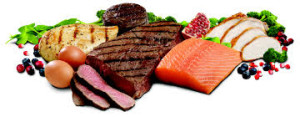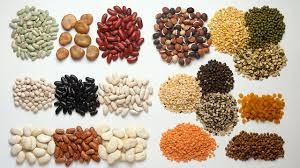Dr. Stephen Sinatra
Over the years, I’ve found that while there are some great cardiologists who are on the cutting-edge of the latest research, there are far more cardiologists who are practicing old medicine, quite literally. Part of the problem is that medical schools spend far more time teaching about pharmaceutical drugs than they do nutritional supplements. Plus, they never even get to new cutting-edge research that doesn’t involve a scalpel or prescription pad. Here are the five biggest heart facts that unfortunately many cardiologists don’t know about, yet.
Here Are The 5 Heart-Health Facts You Should Know
1. Your Heart Can Regenerate Itself: In eye-opening research, Swedish cellular biologists found that cardiomyocytes (heart muscle cells) actually renew themselves. In fact, over a lifetime you will have turned over a full 40 percent of your cardiomyocytes. You can help that heart renewal process by taking targeted nutraceuticals that help stimulate healthy enzymatic and bioenergetic reactions in cells. The nutrients you want to take are ones I’ve dubbed the “Awesome Foursome,” which includes carnitine, magnesium, D-ribose, and CoQ10. These nutrients literally work in the “engine room” of each cell, increasing ATP (adenosine triphosphate) throughout your body and revitalizing the heart.
2. Cholesterol is Not the Villain: While cholesterol is at the scene of the crime when it comes to heart disease, it’s not the real perpetrator. The real “bad guy” is inflammation. Studies show that having elevated C-reactive protein (CRP), which is a measure of inflammation, puts you at twice the risk of dying from cardiovascular-related problems as those with high cholesterol. You generally want a CRP reading below one.
3. Driving Your LDL Cholesterol Too Low Can Be Harmful: Many people, including cardiologists, still believe that the lower your LDL cholesterol is the better. This is one of the reasons that cholesterol lowering statin drugs are prescribed in record numbers. But the truth is, your body needs LDL cholesterol and if you drive that number too low (meaning below 60) it can affect your memory and immune system.
4. Statin Drugs Really Work by Thinning the Blood: Many people think that the healing power of statin drugs is that they lower your cholesterol. But the real reason these drugs can be helpful for some people is that they thin the blood and improve inflammation—which as I mentioned earlier is the real culprit in heart disease. That’s why with men who have a history of a heart attack, a bypass or stent, an angioplasty, or low HDL cholesterol, a statin can be lifesaving. But for many others, the harmful statin side effects far outweigh the benefits.
5. Saturated Fats Are Heart-Healthy: For years, cardiologists told people to avoid fats and especially “artery clogging” saturated fats. But the fact is saturated fats are not just safe, they can actually improve your heart health. That’s because they help to raise “good” HDL cholesterol and help to improve your HDL-triglyceride ratio. Plus, saturated fats actually help to improve your LDL cholesterol pattern, changing them from small artery clogging dense particles into larger “fluffy” and less invasive LDL particles. In fact, a Harvard University study found that a higher intake of saturated fats is associated with less progression of atherosclerosis—hardening of the arteries.
Be Informed. And Stay Healthy.








